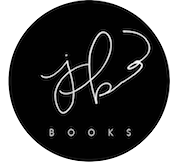Dear reader,
My name is Jenny Bravo. I'm twenty-three. My daily life consists of eight-hour work days, cooking, working out and writing. this. book. And you know what? That's about it.
Disclaimer: I can't complain. Why? Because I don't have children to feed or a husband to talk to or soccer practice or parent teacher conferences or any of those things. I have me. And somehow, I still have to work hard to make time to write. Goodness, how do you moms do it?
Here's the thing, though: being an adult requires practicality, and writing/singing/art in general is the least practical, most important thing that we can do. If you're lucky enough to write full time, then you are amazing. Bravo, you! (Not that more time makes writing any less difficult. Because, it doesn't.)
If you're like me, and have a limited window of writing time, then we need strategy. We need to prioritize, organize, plan, plot. Basically, we have to TOTALLY go against our nature to make time to write. Sounds fun, right? Let's get started.
Take advantage of every spare moment.
We're creative. It comes with the territory. So, we need to get creative with our time. Maybe you're a morning person (more power to you). Try waking up thirty minutes early, fifteen even. Then write as much as you can in that set time.
Maybe you're a night person. Put yourself to bed thirty minutes early. Write for thirty minutes until you fall asleep. ADVANCED MOVE: Write on your lunch break. This is my newest strategy. With an hour for lunch, I could knock out about 2,000 words. Try this, once or twice a week. Let me know if it works for you!
Word Sprint.
With time restraints, we can't afford writer's block. We don't have the luxury of fumbling around until we find the words. WE NEED WORDS, NOW! Did that sound authoritative? Good. Word sprints are every writer's best kept secret. Set a timer: 30 minutes? 15? Even 10! Then get writing.
As many words as possible without editing, without stopping. You'll be AMAZED at how this unlocks all the words you've been hoarding. I can write about 1,000 words in thirty minutes. If I do that three times a day, imagine the possibility! (NOTE: I do not do this three times a day. Yet.)
Hide your phone, hide your TV.
I'll admit it. After work, I just want to lounge around and not use my brain. But there comes a point where my book is calling and I have to answer it, of course. But I want to talk to my friends on Twitter. And I want to see all those cute coffee pins on Pinterest. And I need to blog. And and and…. the excuses keep on coming.
Are you sitting down? I'm about to lay some serious knowledge on you. READY? Do you know how much writing you can get done, simply by writing? I know. Mind-boggling. Sometimes, when I have my phone in my hand and I'm watching some stupid reality show and I have my WIP up on my screen, I have the audacity to say, "Yeah. I'm writing." NO. Give your writing your full attention. Make time to write, and write only. Just for a small portion of your day. Watch how much you'll get done!
Take Home Work: Read six strategies here, read seventeen ways here and read this hilarious post here.
DISCUSSION TOPIC: Okay, these ideas are great for writing. You will see results and words this way. But how about editing? groans groans groans. How do we make time to edit? Comment below. Let's get the ideas in motion!





